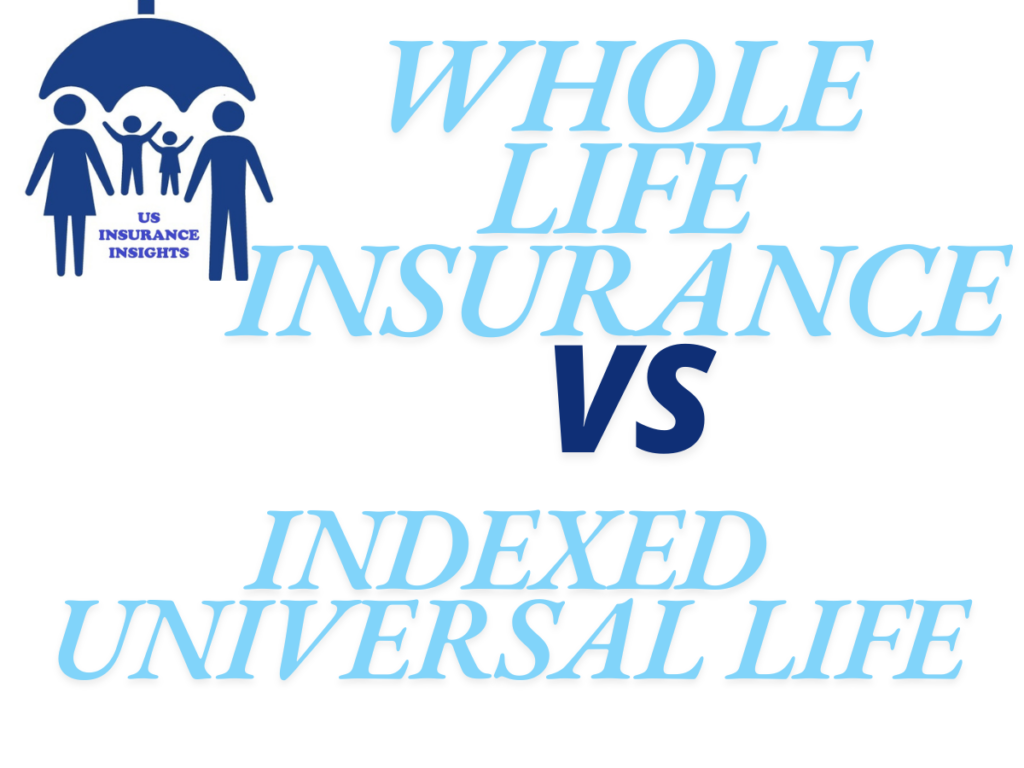Whole Life Insurance vs Indexed Universal Life: Which is Right for You?
Securing your family’s future crucially depends on which life insurance you choose. You have the choices of Life Insurance and Indexed Universal Life (IUL) insurance. However which one is most suitable for reaching your financial goals? Let’s make sense of them by breaking them down.
What exactly is Whole Life Insurance? A comparison between Whole Life Insurance and Indexed Universal Life.
Whole Life Insurance is a type of life insurance you own for as long as you live. It guarantees you’ll be paid upon your death and the cash value in your policy builds up at a fixed rate. Unlike term insurance, whole life guarantees your family is covered all the time.
Important Parts of Whole Life Insurance: A Comparison with Indexed Universal Life
As long as your premiums are paid, your coverage lasts forever.
These two types of life insurance, Fixed-Premium and Fixed Universal are popular for their known cost or fixed rates.
Every month or year, your payments stay the same under the policy.
The part of your policy that grows in savings is guaranteed to gain value at a reliable rate.
In some policies, dividends can be put back into your policy as reinvestment, received as cash or paid as premiums.
Cash-value loans – You are able to get a loan using your policy’s cash value.
Whom Might Whole Life Insurance Be Right For?
Those who:
- Want a safe investment that guarantees your returns.
- Your insurance should not have an expiration date and should last your whole life.
- Go for health insurance plans that keep your premium the same year after year.
- Work towards ensuring their family will benefit from their wealth after they die.
- Hoping to have a ready cash fund to use when unexpected situations arise.
- For illustration: (Whole Life Insurance vs Indexed Universal Life)
- What makes Whole Life Insurance a successful option?
Campbell, a 40-year-old parent, wanted to set up security so their kids had financial help at any time. She picked a whole life plan that requires fixed premiums. Because her cash value increased as years went by, she could use her policy to help pay for her son’s college costs.
What does Indexed Universal Life (IUL) Insurance mean?
- Universal Life Insurance with an Index is long-term insurance and can let you keep your policy and watch its cash value grow more.
- The main characteristics of Indexed Universal Life are:
- You may choose how much you pay each month, within some predetermined limits.
- It is possible to vary your death benefit according to your circumstances.
- Growth of your money is tied to an index – Your money increases by following the performance of leading stock market indexes (e.g., S&P 500).
- This means that, even as the market changes, your policy shouldn’t allow your cash value to go down unless you choose riskier features.
- You can get your funds out from your account without being charged taxes right away.
- What Types Of People Is Indexed Universal Life Insurance Designed For?
- Those who benefit most from IUL are:
- Need a policy that can deliver growth potential higher than what a whole life policy can offer.
- Want the option to adjust their premiums and what’s covered.
- Do not mind market fluctuations but would like to protect themselves.
- Consider keeping their cash value to help you save for retirement or pay for your children’s education.
- Try to receive retirement income that is favorable for taxes.
Example:
What Indexed Universal Life does for Investors
James, an entrepreneur at age 35, hoped to get a life insurance policy that could also help his finances gain value. He opted for an IUL and assigned some of his cash value to an index fund. The longer his term on the policy early, the more valuable it became, giving him a good financial cushion for retirement.
- Why whole life differs from indexed universal life policies.
- A Comparison of the Two
- Feature
- Whole Life Insurance
- Indexed Universal Life Insurance
- Coverage Duration
- Lifetime
- Premiums
- Fixed
- Flexible
- I am interested in the cash value growth.
- Set rate that will not change
- The fund is limited by movements in the stock market index.
- Market Risk
- None
- Downside protection is in place, but there is some risk.
- Death Benefit
- Fixed
- Adjustable
- Tax-Free Loans
- Yes
- Best For
- Stability, guarantees
- More flexible manufacturing and higher opportunities for growth
What Should You Opt for?
Your goals for your finances will help choose whether Whole Life or Indexed Universal Insurance is best for you. This is a fast way to settle on a path.:
If you’re looking for confidence in your insurance, continued cash growth and set premiums, then choose Whole Life Insurance.
If you want options, link to the market and modify your premiums, Indexed Universal Life Insurance is for you.
If you consider your cash value as a financial reserve, either type of policy will let you borrow, but IUL will help your cash grow more.
CREDIT Life and IUL allow you to use your policy for tax-related investments and with IUL, you may find it simpler to withdraw for various needs.
Final Thoughts:
Choosing the Right Thing
Deciding between Whole Life and Indexed Universal life insurance should depend on your attitude towards accepting risk, future approach to finances and personal ambitions. To get a policy that ensures returns, a steady stream of dividends and stability, having Whole Life Insurance is the best way. If you prefer flexible growth options, IUL could be your choice.
Next Steps
Before you decide, it’s helpful to talk to a financial advisor who can look at your situation and guide you to the most appropriate coverage. Don’t forget to compare between several companies to get the lowest prices and best benefits according to what you want.

